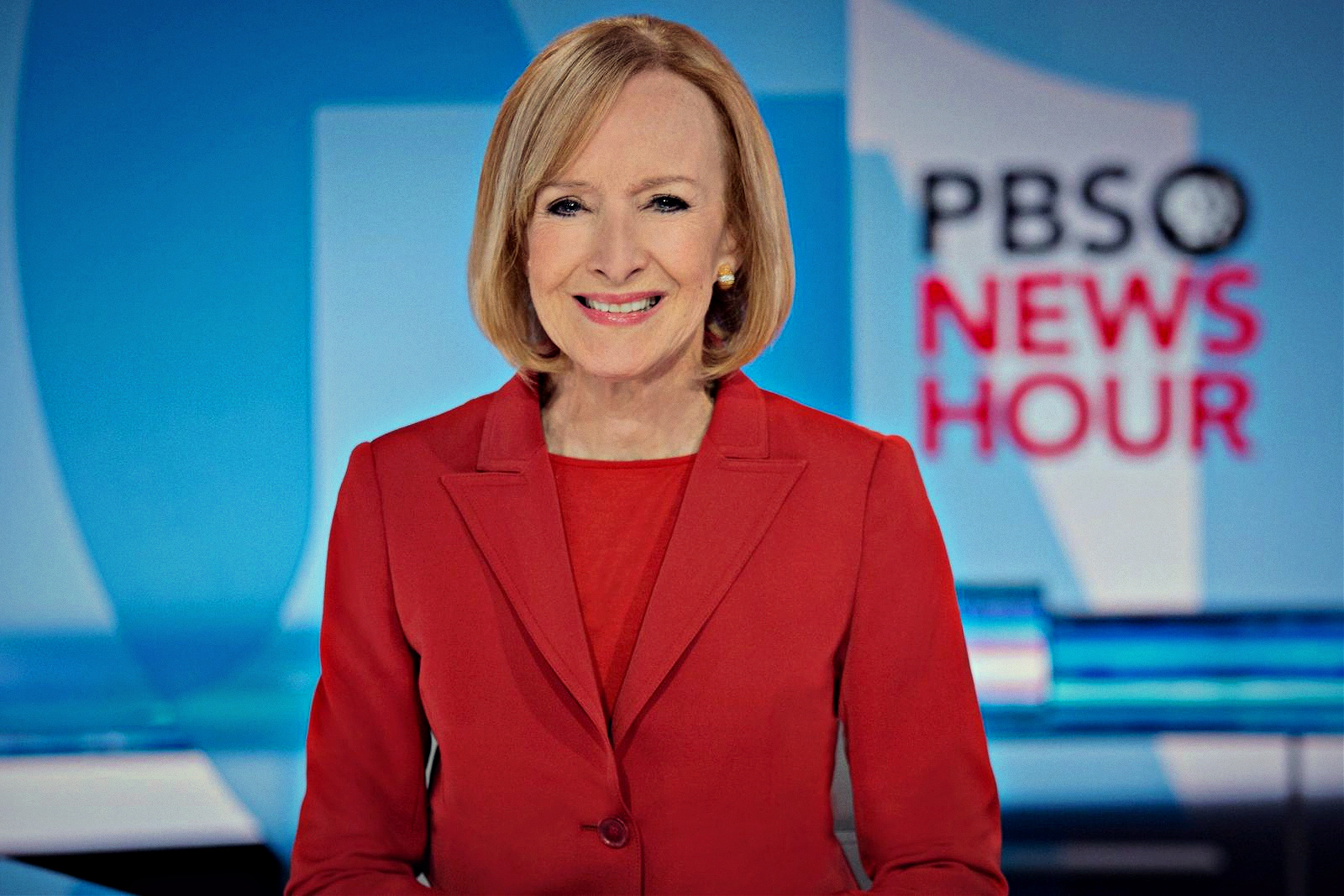
Media
An Appreciation of the Judy Woodruff Era of ‘PBS NewsHour’
I’ve been thinking about transitions a lot lately. After living around it for most of my life, for the first time, I can officially say I am a resident of the nation’s capital and a citizen of the District of Columbia (#DCStatehood). This change in residency is due to starting a new job a few months ago, which is another form of recent change in my life. I now live and work a few blocks from the Capitol and feel perhaps more in tune with it and the effect it has on the everyday lives of Americans than I ever have before.
I have also come to realize that I truly loathe what most network TV evening news has become. Long gone are the days of Walter Cronkite, or even Tom Brokaw. Despite being just 10 years old at the time, my memories of 9/11 are tied to Brokaw’s steadfast devotion to updating the public during a moment of crisis, much like how my parent’s memories of the Kennedy assassination were shaped by Cronkite’s dutiful diligence. Nowadays, Lester Holt, Brokaw’s successor as anchor of NBC Nightly News, is more known for hosting true-crime stories on Dateline than being a journalist. NBC Nightly News will mostly give simplified, surface-level recounting of the day’s events, which is then usually followed by the cloyingly treacle “Inspiring America” segment.
This part of the show almost always features some feel-good story normally involving puppies, people overcoming chronic diseases, old people accomplishing something, and other “inspirational” dreck that I can’t stand. In an ever-evolving and complicated world, this segment and most of the latter half of the NBC Nightly News broadcast seems tacky, trite, designed to manipulate and leave one thinking that hey, the world’s not such a bad place after all, and overall not doing much of the journalistic mission of informing the public.
In contrast, there is the PBS NewsHour, easily the best and most informative evening news broadcast in the country. It was until recently anchored by seasoned news journalist Judy Woodruff, but in the new year, the show is going through a major transition itself. After originally anchoring alongside the late, great Gwen Ifill from 2013 until Ifill’s untimely passing in 2016, the now-solo Woodruff stepped out of the role in late December. She will instead be producing a new series for PBS called America at a Crossroads that will examine issues affecting everyday Americans. In her stead, the duo of Amna Nawaz and Geoff Bennett have replaced Woodruff as anchors of the NewsHour starting at the beginning of this year, their combined talents hoping to fill her metaphorical big shoes.
Like Brokaw on 9/11 or Cronkite on a November day in Dallas, Woodruff had her own unprecedented event to cover in recent years, which wasn’t as obvious a cataclysm to witness as an assassination or terrorist attack: the COVID-19 pandemic. Like those predecessors, she was unwavering in her staunchness to being as accurate as possible.
Early in the pandemic, March 2020 to be exact, Woodruff gave an impassioned plea to viewers: “This is a challenging time for most all of us. This invisible new virus is frightening and spreading rapidly…Already there have been overwhelming acts of generosity, but in the meantime, some of us are acting in a way that could end up unintentionally hurting others…It’s understandable, we want our families and ourselves safe. But it’s also worth remembering that it is a time for the lucky, healthy ones to think of others…This is a moment for Americans to show our best qualities. We’re going to work our way through this; let’s keep others who may not be as strong and resilient as we are in mind, too.” Woodruff has a disabled son, making her plea feel all the more deliberate and heartfelt.
In periods of transition, we look to pillars of tradition to help keep us afloat. My tradition for the past few years has been to watch the Brooks & Capehart segment every Friday night on the PBS NewsHour. In contrast to more sensationalistic content in these hyper-partisan times, both gentlemen, with day jobs at world-class newspapers, are mostly level-headed in their discussions of current events. One is a very deep blue liberal, owing to his background as both a person of color and openly gay man; the other is a right-of-center moderate who hails from less divisive times, where compromise and getting along with the other side was key. They are both, for lack of a better phrase, from “Inside the Beltway.” And now, so am I.
However, despite their differences, their discussions are always civil and informative. Their abiding mutual respect for one another is as apparent as it is genuine, as it was a couple of months ago when Capehart, when asked what he was thankful for around Thanksgiving, gave Brooks accolades for a recent column in The New York Times in which he wrote about his various music fandoms that range from Boomer staples like Bruce Springsteen to more subversive acts like the rapper Nas to even the Millennial bubble gum pop of Katy Perry and Ke$ha.
While Brooks has been doing this segment since 2001, Capehart is the relative newcomer, replacing the late Mark Shields after his retirement at the end of 2020. Shields passed away last year, noted in an op-ed by Brooks for his optimism and pragmatism as he hailed from a different era, one in which public service and covering it was seen as a great calling in a geopolitical reality defined by polarities during the Cold War: democracy vs. authoritarianism, capitalism vs. communism, East vs. West.
As Woodruff moderated between Brooks and Capehart, she reminded me of a wise elder schoolteacher, not unlike Sheryl Lee Ralph’s character on Abbott Elementary, making sure both sides get equal treatment and time. There is an easiness to their rapport, they crack jokes and make funny asides, but are also capable of affecting one another emotionally, such as when Brooks admitted he was moved after Capehart spoke about what the nomination of now-Supreme Court Justice Ketanji Brown Jackson meant to him.
So, for one final time on December 30th, this trio met and discussed the political goings-on of the week, with Brooks segueing into an impromptu salute, “reflecting with gratitude” to Woodruff on her last episode. “You’ve set a tone, a culture, and a set of values, and it’s just easier to be better when you’re around you,” Brooks told a clearly emotional Woodruff. “Ego is not allowed here, and that radiates from you.” But the proceedings weren’t exclusively serious-minded, as Brooks recounted Woodruff singing to him at his bachelor party. “And now we know why I don’t sing for a living,” Woodruff responded.
Woodruff ended her last broadcast simply, but consistently, as she had every previous evening: “And that is the NewsHour for tonight. I’m Judy Woodruff. For all of us at the PBS NewsHour, thank you, please stay safe, and we’ll see you soon.”
As I build my new, somewhat-unexpected life here in the heart of Washington, I look forward to continuing the tradition of watching a new weekly Brooks & Capehart segment every Friday that will feature something new, something different, but mostly stay the same. Such is the nature of transition, as I’ve become all but too familiar with it during a moment of great upheaval in my personal life.
But at this critical juncture of my life, in the life of my country, and in a watershed moment for discourse itself, I have been grateful for the dependable nature of this segment every Friday. Brooks & Capehart clarify the week’s events with a healthy dialogue that all Americans of differing opinions and backgrounds should strive for. Moreover, in this season of transition, I am grateful for the work of a seasoned news anchor and veteran journalist in Woodruff who told the facts just the way they were, and I remain excited to see her new reporting and what she has left in store.

